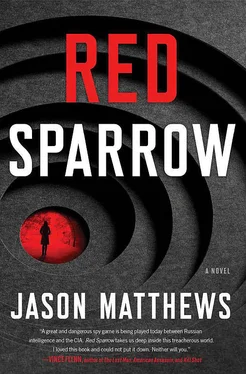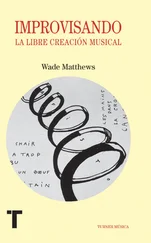The ride in the windowless van was long. They rocked violently as it made turns, jounced when it went over tracks, and tilted as they went around a traffic circle. Korchnoi knew where they were headed, he could track their route west through the city. When the van doors were flung open and he was dragged out, Korchnoi looked up. He thought he should take one last look at the sky, tonight inky black with an orange city glow, and breathe the air deeply, likely the last time he could do so. As they manhandled him to a small door, he also looked around quickly to confirm what he knew already. The crowded courtyard was littered and dirty, bleak walls of unfinished cinder block were topped by a jumbled lattice of barbed wire, the familiar ocher walls of the Y-shaped, five-story building were unmistakable. Lefortovo Prison.
Korchnoi knew what was inevitable: vyshaya mere, the highest punishment. He knew his final stop: bratskaya mogila, an unmarked grave. The only choice remaining to him was the manner in which he would go out. He already had decided not to make it easy for them, and that ironically meant he would talk, freely, but just not about what they wanted to hear.
To the mounting discomfort of his interrogators, he told them he had not been spying against Russia, rather, he’d been spying for Russia, first to defy the Soviet system, the system that strangled its people for fifty years, and now to confound the podonki, the current crop in the Kremlin. He told the steely faced men in the interrogation rooms that he had no regrets, that he’d do it again. His career as a spy overwhelmed them; he was a general officer. The damage assessment would take years. He could see it in their faces.
Contemplating his arrest and certain demise was made easier knowing that he had set in motion his legacy. He noted with satisfaction that Dominika was not mentioned during any of the questioning, nor was there any insinuation that she was under suspicion. She was safe.
Korchnoi answered their questions, and catalogued the intelligence he had provided for nearly a decade and a half to the Americans. Despite Korchnoi’s total cooperation, Zyuganov told them to shift to “physical means,” some of the old techniques from the original basement cells of the Lubyanka. It was Zyuganov’s pleasure, perhaps a little payback because Korchnoi had betrayed them, the bendy cedar slivers under the nails, black and oozing red, the wooden dowels pressed between the toes, the oily knuckle pressed into the hollow behind the earlobe. In another room, the woman doctor, a urologist, looked at his face as she eased the wire up one more millimeter.
When the rough stuff suddenly stopped and they left him in his cell for an entire day, Korchnoi suspected Vanya had probably ordered a halt. The next day Korchnoi entered the interrogation room as he had been doing for the last days, to be confronted with a display of his CIA communications equipment laid out on a table. They waited for some time before Vanya Egorov walked in, motioning the guard to get out and close the door behind him. Vanya went around the table slowly, not looking at MARBLE, fingering the equipment and battery packs with a faint smile on his lips.
“I considered it might be you, briefly, some months ago,” said Vanya, lighting a cigarette. He did not offer one to Korchnoi. “I told myself it was impossible, one of our best, the last person who could possibly engage in such disloyalty to Russia.”
Korchnoi said nothing, held his hands in his lap. “All those years, all our work together, a life’s career, everything undone so easily,” said Egorov. “The trust I showed you, the love.”
“This is about you, of course,” said Korchnoi. “It always is about you, Vanya.”
“ Zalupa, dickhead,” said Egorov, flicking his ash to the floor. “You have gravely damaged the Service. You have damaged your country, forsaken Russia.” He was playing it up for the microphones, thought Korchnoi.
“ Zalupatsia is more like it,” said Korchnoi, Vanya playing the big man, taking airs. “What is it you want, Vanya? Why are you here?”
Vanya looked at Korchnoi for a second, then looked at the equipment on the table. “I came to tell you that it was my niece, your protégée, Dominika, who elicited the information that led to your arrest. She is a hero, and you are the plodovyi cherv, the cankerworm.”
There it was, their succession konspiratsia . Korchnoi said a silent word of congratulations to Benford.
Vanya watched Korchnoi’s face to gauge his reaction, and was satisfied to see the older man look down, as if in defeat. He gathered up his cigarettes and pounded on the cell door. Walking down the cement corridor past the steel doors, Vanya calculated. Loss of SWAN balanced out by the arrest of Korchnoi. Dominika. Get her back .
=====
Mysheniye voznya . Mice games. Line T technical officers carefully moved the covcom equipment back to MARBLE’s apartment building in Strogino, to originate the transmission from the usual coordinates. A knot of quiet men huddled on the roof looking out over the blue-black Moskva River and hit SEND and waited for the rukopozhatie, handshake, from the satellite over the Arctic Circle. The uppercase “NIKO” signature on the covcom transmission told Benford that MARBLE’s message had been written by someone else, or by MARBLE under duress. Whatever the case, it meant that his arrest had finally come. Even though he and MARBLE had gone over and over the plan, Benford’s instincts recoiled at the thought of his agent sacrificing himself, and he silently mourned the loss.
=====
His Mercedes covered the twenty-five miles on the deserted Rublyovo-Uspenskoye Highway in fifteen minutes, but Vanya had to wait at the reception building for ten minutes before the duty vehicle arrived to take him through the black fir and pine forest to the neoclassical front entrance of Novo-Ogarevo. Vanya checked his watch. Nearly midnight, and he inwardly shuddered at the late-night summons to the secluded presidential dacha west of Moscow. Just like you-know-who, thought Vanya. Uncle Joe made men wait till three a.m. in an anteroom superheated by a roaring fireplace.
This was different than Stalin. Egorov was ushered down a curving flight of steps into a massive basement gymnasium that stretched the entire width of the building, brimming with machines and weight stacks glittering in the overhead lights. Egorov dryly noted that his Line KR chief, Alexei Zyuganov, was sitting in a chair next to an exercise station. A witness, thought Vanya, bad sign.
President Putin was shirtless, his hairless chest slick, the veins in his arms popping. His hands were through the grips of two nylon suspension straps, anchored to an overhead bar. The President of All Russias leaned forward against the straps and, by extending his arms like Christ on the Cross, lowered himself face forward, nearly parallel to the mat, a foot off the floor. Shaking with exertion, he raised himself up by bringing his arms together, then lowered himself, then up again. That little ulitka, that escargot Zyuganov, never took his eyes off Putin. A matter of seconds before he would be licking the sweat off his benefactor’s chest.
Putin continued raising and lowering himself, with hissing exhalations of breath, then stopped at maximum extension, raised his head, and looked at Egorov with eyes the color of an old glacier. Motionless. Levitating. Another second, and up again.
“I want her out of Greece, back in Russia,” said Putin thinly. He mopped his face with a towel, threw it backhanded at Zyuganov, who caught it, flustered. Putin stared, his eyes bored into Egorov’s, an unsettling habit, featuring himself as a clairvoyant, a savant. Some believed the president could read minds.
Читать дальше












